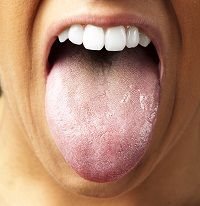Taste Sensory Deficit Underestimated in Multiple Sclerosis Patients
Multiple sclerosis patients may exhibit taste sensory deficits more often than previously understood, according to findings published in the Journal of Neurology.

Multiple sclerosis (MS) patients may exhibit taste sensory deficits more often than previously understood, according to findings published in the Journal of Neurology.
Researchers from the University of Pennsylvania School of Medicine gave patients a taste test in order to build a detailed assessment of whether taste function is related to brain lesions found in the central nervous system of MS patients. The taste test used sweet (sucrose), sour (citric acid), bitter (caffeine) and salty (NaCl) samples in 73 MS patients and 73 control subjects, who then underwent MRI testing to search for brain lesions in 52 brain regions.
The MS patients scored significantly lower than their non MS counterparts among all four taste groups in both the anterior and posterior tongue regions, the researchers reported. Between 15 and 32 percent of the MS patients had taste scores below the fifth percentile of the control patients: caffeine, 15.07 percent; citric acid, 21.9 percent; sucrose, 24.66 percent; and NaCl, 31.5 percent. These numbers are about twice as high as previous studies’ conclusions into this topic — between five and 20 percent.
The researchers said that the taste scores were linked to the number and volume of brain legions on the frontal and temporal lobes. MRIs showed that taste scores were inversely correlated with lesion volumes in the temporal, medial frontal and superior frontal loves. Additionally, the taste scores were correlated to the number of lesions in the left and right superior frontal lobes, right anterior cingulated gyrus and left parietal operculum.
“This study represents the most comprehensive study preformed to date on the influences of MS on the ability to taste,” lead author Richard Doty, PhD, said in a press release. “It appears that a sizable number of these patients exhibit taste deficits, more so than originally thought. This suggests that altered taste function, though less noticeable than changes in vision, is a relatively common feature in MS. These findings give us a better insight about that relationship, as well as the areas of the brain that are more likely to impact the dysfunction when scarred from the disease.”
Women consistently performed better than men during the taste test, the researchers said. This was true regardless of which taste test it was and was aligned with prior studies into this correlation. The researchers believe women performed better than men because women have more papillae and taste buds than men.
“Future studies investigating the relationship between taste and MS may help better diagnose and understand the disease, as well as better manage symptoms,” Doty concluded.